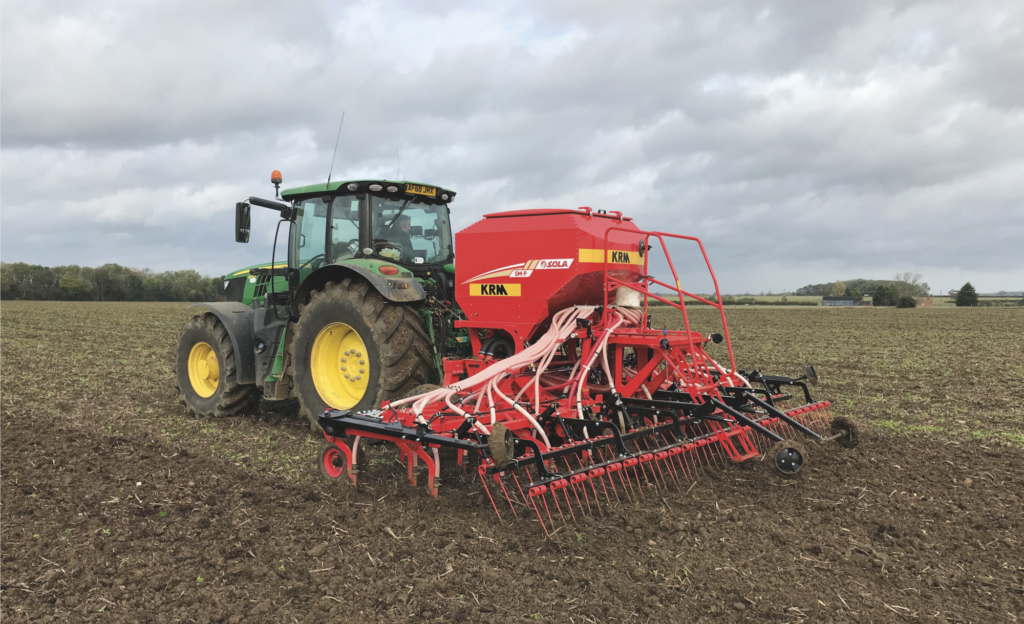Continued success for multi-purpose tine drills
1st October 2021
Many farmers are looking for a versatile drill which will perform well in direct and min-till situations and Keith Rennie Machinery (KRM) claims to offer a range of tine drills

Many farmers are looking for a versatile drill which will perform well in direct and min-till situations and Keith Rennie Machinery (KRM) claims to offer a range of tine drills which do just that.
Having built a reputation with the Ares 2713 and SM 1909 tine drills, the latest Ares-P and SM-P variants from KRM feature a new hopper and metering unit, improving the operator experience and accuracy.
The recently introduced ‘Electra’ metering system allows the operator to quickly set the desired rate from a single calibration. The system uses the drill’s hydraulic fan to deliver metered seed to a conveniently located container to be weighed. The weight is then entered into the Isobus control system and the rate set. The Isobus system can also be used for variable rate drilling, auto on/off and sectional control where half width shut off is fitted, as well as managing all the usual drill functions such as tramlining, hopper level and alarms.
Another feature of this system is the pressurised hopper which ensures consistent, even seed flow to the metering unit and external distribution heads, which leave the hopper unobstructed for ease of filling and cleaning between different seed types or varieties.
The narrow Tungsten carbide tipped tine coulters run at an attacking angle to pull the tip in to work. Each coulter creates a tilth as it pulls through the soil and loosens the soil below the coulter tip, creating ideal conditions for germination and strong root development. Straw and other residues are moved away from the row ensuring seeds are placed in clear moist soil. The undisturbed soil between the rows minimises the risk of weeds germinating and leaves a firm surface for following operations.
These lightweight, high output models are available in 4, 4.8, 5, 6 and 7m working widths to suit available horsepower and tramline width.


